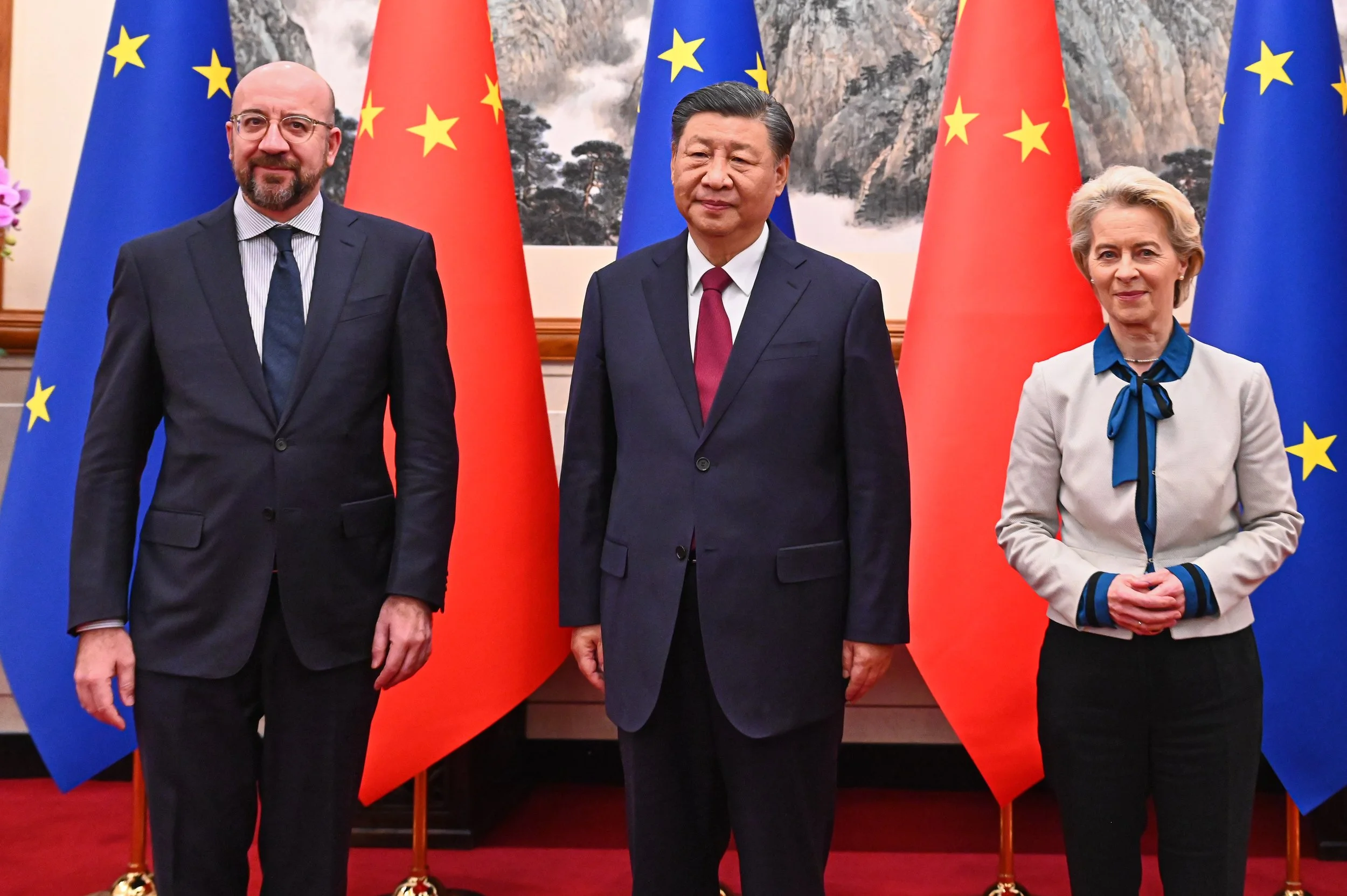This month we examine Berlin’s economic and political challenges, a tough stance on China, and Southeast Asia’s reaction to the arrival of the Trump 2.0 presidency amid US policy uncertainty.
Read MoreWritten by Jana C. von Dessien
Two decades of wallowing in the comforts of cheap Russian energy, open Chinese markets, and US security guarantees seem to have thoroughly corrupted the entire political class.
Read MoreCentral and Eastern Europe’s (CEE) relationship with Taiwan is evolving amid shifting global dynamics.
Dr Zsuzsa Anna Ferenczy speaks with Matej Šimalčík, a Taiwan Fellowship recipient currently based at the Institute for National Defense and Security Research (INDSR) in Taipei, to explore the implications of these developments for CEE, Taiwan, and the broader geopolitical landscape.
Read MoreWritten by Dr Una Aleksandra Bērziņa-Čerenkova
Risks remain for Europe not just internally, but also externally, as China's support for Russia in its war against Ukraine and US pressure for a unified transatlantic approach limit the EU's room for manoeuvre.
Read MoreWritten by Dr Justyna Szczudlik
Sympathising with the idea of hybrid peace is a dangerous trap for the West. The only way to undermine Sino-Russian alignment, deter China from aggressive moves, and defend the rules-based order is to do everything possible to help Ukraine win the war.
Read MoreWritten by Chhay Lim
Policies that force Cambodia into a binary choice risk deepening its reliance on China and undermining US efforts to maintain influence in Southeast Asia.
Read MoreWritten by Anny Boc
Beijing’s passive approach only reflects its dilemma of balancing its regional interests with its need to preserve strategic ties with both Russia and North Korea, especially as the competition between China and the United States is likely to intensify.
Read MoreThis month we look at how the ongoing Gaza conflict is reshaping global geopolitics, and intensifying the rivalry between the US and China in the Indo-Pacific. Our second brief argues for the (re)inclusion of Kenya — an important regional power strategically located along the Indian Ocean — as a key part of the Indo-Pacific.
Subscribe today.
Read MoreWritten by Victor De Decker
However, a key question remains: to what extent can European authorities strike a deal with China while facing coercive pressure from the Trump administration on the one hand and Beijing’s inflexible negotiation tactics on the other?
Read MoreWe are delighted to present the first in a new series of reports developed in partnership with the Boym Institute.
Our first report delves into Connected and Autonomous Vehicles (CAVs), examining their potential impacts, regulatory landscape(s), and key implications for businesses, governments, and individuals.
Read MoreWritten by Rorry Daniels
For at least the next four years, downward pressure on the US-China relationship will prevent a breakthrough in cross-Taiwan Strait relations.
Read MoreWritten by Hunter Marston
While sanctions alone are unlikely to change the military’s behaviour, they are more likely to be effective when part of a broader diplomatic strategy, which is required to resolve the current crisis.
Read MoreWritten by Betty Wang
The COP29 negotiations underscored the potential for China and India to act as critical players in facilitating global climate progress, yet the lack of meaningful results highlighted the accompanying challenges.
Read More9DASHLINE’s Southeast Asia Associate Hunter Marston recently spoke with Dr Enze Han about his latest book, The Ripple Effect: China’s Complex Presence in Southeast Asia.
The book provides a nuanced perspective on China’s relationship with Southeast Asia, focusing not just on state-level interactions but also on the significant role of non-state actors, such as businesses and migrants, in shaping regional perceptions of China.
Read MoreWritten by Dr Seohee Park
This crisis represents more than a domestic Korean political drama; it tests the resilience of regional alliances and could accelerate broader geopolitical shifts in an increasingly complex Northeast Asian landscape.
Read MoreAs the year comes to a close, the Indo-Pacific continues to witness dynamic shifts across the political, economic, and strategic landscapes.
This month's brief explores how China may be attempting to connect disputes in the South China Sea with its declared objective of reunification with Taiwan.
Subscribe today.
Read MoreThis month we look ahead to 2025. With insights from Manali Kumar and David MacSweeney, we explore how ASEAN might respond to a potential Middle East ceasefire, examine India’s growing role as a key partner in Europe and the Indo-Pacific, and hear how the Philippines celebrates Christmas like nowhere else.
Subscribe now and never miss an episode.
Read MoreWritten by Tran Thi Mong Tuyen
To establish itself as a semiconductor hub Vietnam needs a bold strategy that leverages its ‘latecomer’ advantages. Vietnam should set clear goals and concentrate resources on developing its semiconductor industry, with milestones for 2030 and 2050.
Read More















